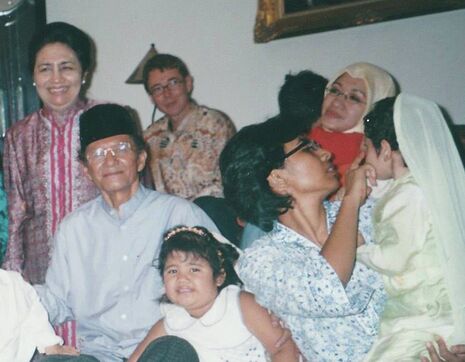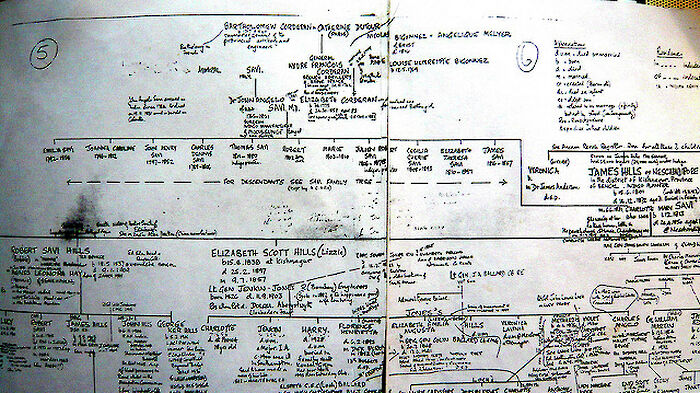Childhood memories of Eid and Ramadan
A few days ago Ramadan began. For many Muslims, practising and non-practising, this time of year encourages reflection on the religious festival and religious identities in general.

Over a billion Muslims across the globe have begun fasting this week. Although I haven’t fasted in years nor consider myself a practising Muslim, this time of the year reminds me to reflect on my childhood memories of ‘Eid, Ramadan, and the overall influence of Islam on my upbringing. Unfortunately, fond memories were not the only things that conjured up these recollections this year. The slaughter of so many Palestinians in Gaza calling for their right to return on the seventieth anniversary of the Nakba fell right before the holiest time of the year for Muslims. The media largely failed to emphasise, or even acknowledge, the significance of the timing of this atrocity. The recent wave of suicide bombings in Indonesia has also made me contemplate my recollections of Ramadan and its greater significance.
My childhood inability to interpret Quranic stories likely fed into my choice of degree at Cambridge.
Even though I didn’t live in a Muslim country until I was sixteen, the community of expatriate Muslim Indonesians in the Philippines was very strong. This network was especially important when we were unable to spend Ramadan with family in Jakarta, where the atmosphere was incredibly different. Traffic flow in Jakarta is heavily influenced by patterns of fasting and ‘Eid prayers. Rush hour traffic in Indonesia’s capital intensifies during Ramadan, and those who leave work or home to break their fast with family and friends could spend hours upon hours waiting in traffic. Getting stuck in Macet Berbuka Puasa (traffic before the breaking of fast) often resulted in the breaking of fast on the road, with whatever food one could find. Sometimes the congestion was so bad people jumped out of their cars and walked the rest of the way home, or to the nearest food vendor or mall.
Being Muslim is an important part of my identity, and is one predominantly based on family and social networks. This could explain why I questioned almost everything I was taught about the religion as a child; my reluctance was compounded by the way it was conveyed to me. Although most Indonesian Muslims can read the Quran, teaching often consisted only of recitation and never went beyond a direct translation of the Arabic. I felt that I was never taught to comprehend but rather to absorb and accept the knowledge imparted to me. I would exhaust my teacher’s patience and question every little detail of anything he told me: why he said ‘man’ instead of ‘humankind’, or if I even had to wash my eyebrows when performing Wudu (ritual washing before prayer). The combination of childish impatience, a reluctance to learn, and constant questioning, with the imposition of any sort of knowledge facilitated this pesky attitude.
My nine-year-old self was especially enraged at the story of Ibrahim and Ismail: I remember going home to my father and angrily asking him why God would ask someone to kill their own son to prove their faith. I haven’t revisited the story since, but there was much more to it than my simplistic interpretation. Despite my great unwillingness to understand Islamic stories and practices, I always enjoyed participating in communal activities, including prayer. I would get so excited whenever the Muslim Indonesian community in Manila gathered at someone’s house because it meant everyone brought delicious food, played fun games and told great stories. Moreover, these were all things we would enjoy together as a tight-knit group, not only bound by our religious identity, but also by discrete ethnic and regional differences. It’s probable that the disjuncture between the ability to recite Quranic stories and actually understanding their content made studying Arabic here so attractive to me. My childhood inability to interpret Quranic stories likely fed into my choice of degree at Cambridge.
My religion partly explains who I am, but not in a way that satisfies those who want a straightforward answer. I know that it is only one aspect of my character, but doesn’t tell the whole story. Identities can be complex and confusing; the fragmentation of mine into a diverse collection of partial elements has made it more difficult to explain but has provided me with a unique life experience. This is something that I will continue to unpack as I grow, and I will forever be fond of it.
 News / Clare Hall spent over £500k opposing busway 24 December 2025
News / Clare Hall spent over £500k opposing busway 24 December 2025 Comment / The ‘class’ of Cambridge24 December 2025
Comment / The ‘class’ of Cambridge24 December 2025 News / Caius mourns its tree-mendous loss23 December 2025
News / Caius mourns its tree-mendous loss23 December 2025 Comment / Yes, I’m brown – but I have more important things to say22 December 2025
Comment / Yes, I’m brown – but I have more important things to say22 December 2025 News / Girton JCR publishes open letter expressing solidarity with Palestine25 December 2025
News / Girton JCR publishes open letter expressing solidarity with Palestine25 December 2025










